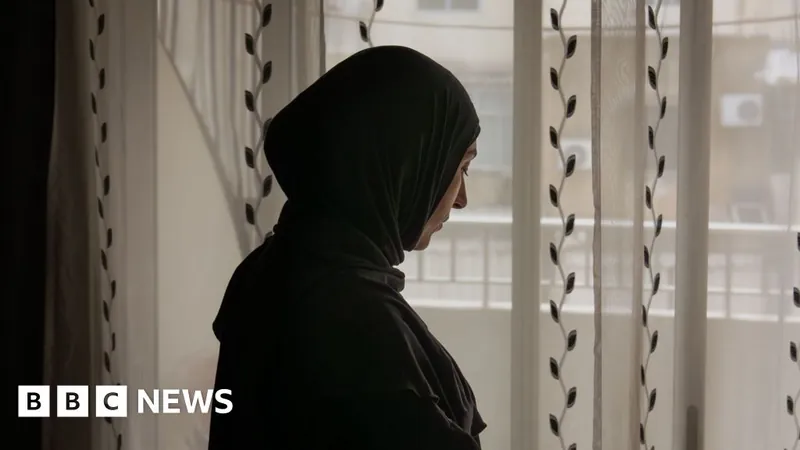
Manitoba Premier Takes Bold Step to End Jail Time for Tuberculosis Treatment Following Controversial Case
2024-12-02
Author: Jacques
Introduction
In a significant development, Manitoba Premier Wab Kinew has put an end to the controversial practice of incarcerating individuals to enforce tuberculosis (TB) treatment, following the shocking case of Geraldine Mason, a 36-year-old woman from God’s Lake First Nation. Mason's detention sparked a public outcry after she spent a month in jail for non-compliance with treatment protocols for her third TB infection.
Background on Geraldine Mason's Case
Kinew's direction to the province's Chief Public Health Officer, Dr. Brent Roussin, comes after Mason was detained under the Public Health Act for allegedly missing treatments, which reportedly led to the increased spread of the infectious disease. Although Mason admits to missing doses, she has vehemently stated that she never outright refused her medication and was not contagious at the time of her arrest.
Public Reaction and Premier's Commitment
“I was treated like a criminal,” Mason expressed in a statement. Her experience, as she described it, was dehumanizing; she endured strip searches, inadequate facilities, and was handcuffed during necessary medical procedures, including receiving an X-ray.
The Premier has publicly committed to apologizing to Mason and has asked government officials to develop a public health order that explicitly prohibits the incarceration of individuals for TB treatment moving forward. "It’s not the right way to treat people," Kinew stated during a press conference.
Circumstances of Detention
Mason's ordeal began while she was in Winnipeg for a dental appointment. The Public Health Act allowed a medical officer to present a case in court for her detention on public health grounds. After experiencing significant stress from the abrupt separation from her family and being held in a remand centre, Mason's legal team successfully argued that her detention was unlawful.
Legal Perspective
Her lawyer, Leif Jensen, expressed confusion regarding the rationale for her transfer to jail instead of a hospital. Community-based alternatives weren’t considered, raising questions about the handling of TB cases in Manitoba. “It makes no sense to me that she would have been put in a prison instead of a hospital if she needed to be placed anywhere,” Jensen argued.
Public Health Challenge
Mason has battled tuberculosis multiple times throughout her life, with her initial diagnosis occurring in 2005. Despite the challenges posed by the disease—which primarily affects the lungs and is spread through the air—proper treatment can lead to successful recovery. In 2023, Manitoba reported 176 new cases of tuberculosis, highlighting the ongoing public health challenge.
Future Implications
The health implications of Mason's case are profound. Tuberculosis, while largely curable, can be deadly if untreated. With Kinew's decision, public health officials are now tasked with finding alternative, humane methods to treat individuals with TB that do not involve jail time.
Mason's Path Forward
Mason intends to move forward from her traumatic experience, although the effects linger. Under the conditions of her release, she is now required to have daily FaceTime appointments with a healthcare worker to monitor her treatment adherence.
Broader Conversations
This incident has sparked a broader conversation about public health policy and the treatment of vulnerable populations within the healthcare system. As Kinew's government reevaluates its approach, the hope is that no one else will have to endure a similar fate as Geraldine Mason.









 Brasil (PT)
Brasil (PT)
 Canada (EN)
Canada (EN)
 Chile (ES)
Chile (ES)
 España (ES)
España (ES)
 France (FR)
France (FR)
 Hong Kong (EN)
Hong Kong (EN)
 Italia (IT)
Italia (IT)
 日本 (JA)
日本 (JA)
 Magyarország (HU)
Magyarország (HU)
 Norge (NO)
Norge (NO)
 Polska (PL)
Polska (PL)
 Schweiz (DE)
Schweiz (DE)
 Singapore (EN)
Singapore (EN)
 Sverige (SV)
Sverige (SV)
 Suomi (FI)
Suomi (FI)
 Türkiye (TR)
Türkiye (TR)